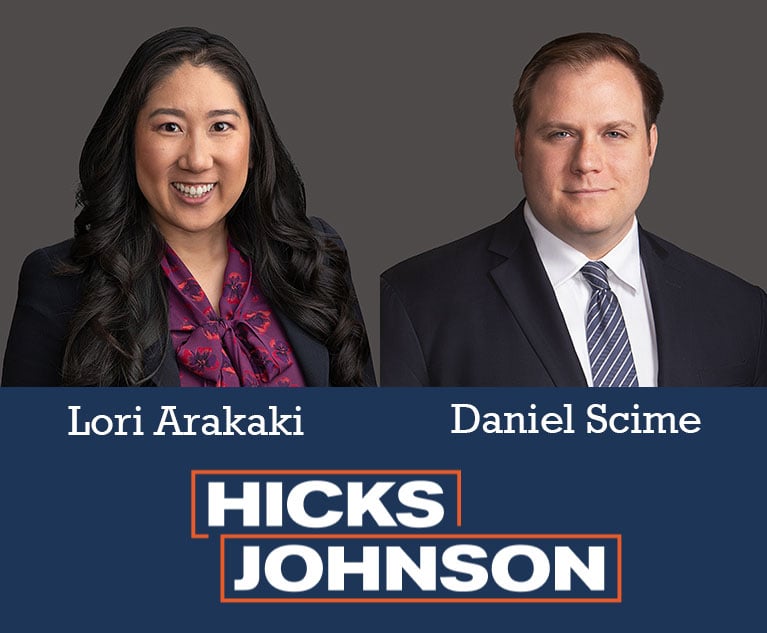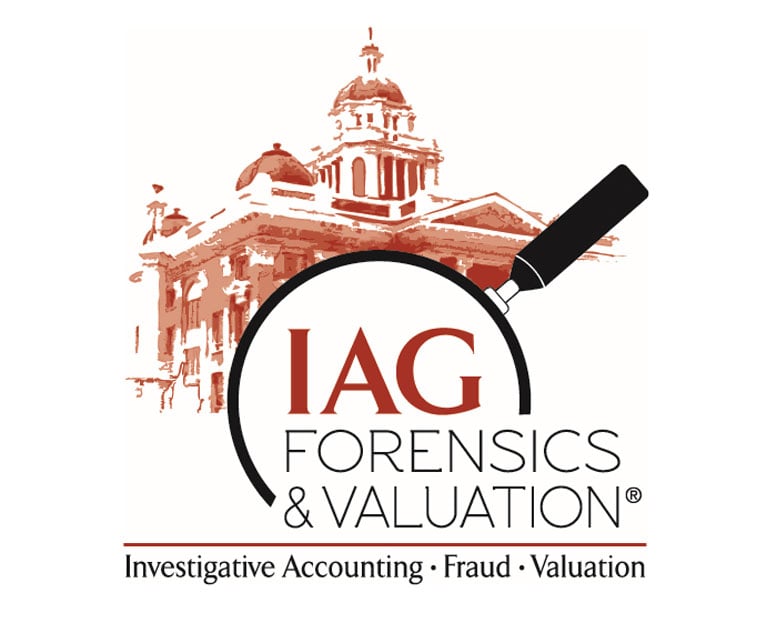8. Eliminating the Taboo of Failure
Clients almost invariably react positively to an admission from their lawyer that some or all of the project has failed, coupled with candid reasons why and insightful improvement suggestions.
April 26, 2021 at 12:21 AM
4 minute read
The original version of this story was published on Lean Adviser
"As lawyers, we are problem solvers so roadblocks and frustrations are going to happen. We should never fear roadblocks — we should expect them and attack them head on." — José Gonzalez, EVP & General Counsel, CNA, USA
Legal projects go wrong. Let's admit that. We have all have tried cases that we should have tried differently, or not at all. Let's admit that too. We can also admit that, among trial lawyers at least, discussion of failure is either taboo, or at least supplanted by philosophy:
- "Some you win, some you, lose, it's all swings and roundabouts"
- "We just didn't get the rub of the greens"
- "That's why we always caution for litigation risk"
These are exercises in post-project rationalization. This is where we tell ourselves comforting stories about the outcome of a project. While each of these sentiments might be true and justifiable, what they circumvent is accountability to the client and consequential learning. Clients almost invariably react positively to an admission from their lawyer that some or all of the project has failed, coupled with candid reasons why and insightful improvement suggestions. In the trial world, judges sometimes warn parties that 'at the end of this, one of you is going to be unhappy.' That always seems inaccurate — the correct caveat would be 'at the end of this at least one of you is going to be unhappy.'
In contrast to manufacturing or other industries where mechanical mistakes can be blamed for failure, if a legal project goes wrong, human performance is pretty much the only factor. That's not to say that the lawyer is the only human involved, or that chance, randomness, and capriciousness can't play a part. But even so, if there are failings they won't be mechanical. They'll be human, and usually the focus will be on us, the lawyers. This is why we need to talk about mistakes.
If we evaluate information and events in this methodical way, we will be better placed to think about correction, either total or mitigation. In project management terms, an error state is an error state. It might be big or small, it might be human or serendipity. None of that matters — find it and fix it. There's no reason we can't talk about mistakes, including our own.
Lawyers make mistakes. It's impossible to do our job and never make a slip, an error of judgment or a miscalculation. The thing is, if you're evaluating your project carefully then most times the effect of your mistake will be something visible, and correctible. No one needs to disown them; they're just error states. Find them early, don't hide them, learn from them. That's it.
Let's focus on addressing mistakes. In a truly collaborative environment, the mantra should be: "The first thing we do is recognize a mistake, then we address it together, then learn from it".
So that's what we should do with mistakes.
But it might not be that simple. Lawyers are believed to have certain distinctive personality traits that matter when it comes to mistakes; we are often naturally independent, resistant to being managed, and sensitive to criticism, and maybe we even have an innate reluctance to admit errors. If this is so, then a lawyer who makes a mistake that goes unnoticed might be instinctively reluctant to draw attention to it.
This is why the cultural approach of the firm or legal department to errors is vitally important. As we have discussed, legal projects are dynamic, fast moving, and challenging. The work is often pressurized and requires effective teamwork We have seen in preceding lessons how errors can arise in planning, execution, or from external support. With the right culture, it doesn't matter if things go wrong or who the culprit is. What should matter is that errors are detected and adjustments are made.
Any law firm or department with a blame culture is a danger to itself and its clients. Not only will correctable errors be more likely to remain undetected, but the firm will lose the opportunity to acquire valuable 'learnings' from the project and so improve.
NOT FOR REPRINT
© 2025 ALM Global, LLC, All Rights Reserved. Request academic re-use from www.copyright.com. All other uses, submit a request to [email protected]. For more information visit Asset & Logo Licensing.
You Might Like
View All
Longtime AOC Director Glenn Grant to Step Down, Assignment Judge to Take Over
4 minute read
Hours After Trump Takes Office, Democratic AGs Target Birthright Citizenship Order
4 minute read
Hicks Johnson Promotes Lori Arakaki and Daniel Scime to Firm Partnership
2 minute read
IAG Forensics & Valuation is excited to announce promotions at our firm effective 1/1/2025.
1 minute readTrending Stories
Who Got The Work
J. Brugh Lower of Gibbons has entered an appearance for industrial equipment supplier Devco Corporation in a pending trademark infringement lawsuit. The suit, accusing the defendant of selling knock-off Graco products, was filed Dec. 18 in New Jersey District Court by Rivkin Radler on behalf of Graco Inc. and Graco Minnesota. The case, assigned to U.S. District Judge Zahid N. Quraishi, is 3:24-cv-11294, Graco Inc. et al v. Devco Corporation.
Who Got The Work
Rebecca Maller-Stein and Kent A. Yalowitz of Arnold & Porter Kaye Scholer have entered their appearances for Hanaco Venture Capital and its executives, Lior Prosor and David Frankel, in a pending securities lawsuit. The action, filed on Dec. 24 in New York Southern District Court by Zell, Aron & Co. on behalf of Goldeneye Advisors, accuses the defendants of negligently and fraudulently managing the plaintiff's $1 million investment. The case, assigned to U.S. District Judge Vernon S. Broderick, is 1:24-cv-09918, Goldeneye Advisors, LLC v. Hanaco Venture Capital, Ltd. et al.
Who Got The Work
Attorneys from A&O Shearman has stepped in as defense counsel for Toronto-Dominion Bank and other defendants in a pending securities class action. The suit, filed Dec. 11 in New York Southern District Court by Bleichmar Fonti & Auld, accuses the defendants of concealing the bank's 'pervasive' deficiencies in regards to its compliance with the Bank Secrecy Act and the quality of its anti-money laundering controls. The case, assigned to U.S. District Judge Arun Subramanian, is 1:24-cv-09445, Gonzalez v. The Toronto-Dominion Bank et al.
Who Got The Work
Crown Castle International, a Pennsylvania company providing shared communications infrastructure, has turned to Luke D. Wolf of Gordon Rees Scully Mansukhani to fend off a pending breach-of-contract lawsuit. The court action, filed Nov. 25 in Michigan Eastern District Court by Hooper Hathaway PC on behalf of The Town Residences LLC, accuses Crown Castle of failing to transfer approximately $30,000 in utility payments from T-Mobile in breach of a roof-top lease and assignment agreement. The case, assigned to U.S. District Judge Susan K. Declercq, is 2:24-cv-13131, The Town Residences LLC v. T-Mobile US, Inc. et al.
Who Got The Work
Wilfred P. Coronato and Daniel M. Schwartz of McCarter & English have stepped in as defense counsel to Electrolux Home Products Inc. in a pending product liability lawsuit. The court action, filed Nov. 26 in New York Eastern District Court by Poulos Lopiccolo PC and Nagel Rice LLP on behalf of David Stern, alleges that the defendant's refrigerators’ drawers and shelving repeatedly break and fall apart within months after purchase. The case, assigned to U.S. District Judge Joan M. Azrack, is 2:24-cv-08204, Stern v. Electrolux Home Products, Inc.
Featured Firms
Law Offices of Gary Martin Hays & Associates, P.C.
(470) 294-1674
Law Offices of Mark E. Salomone
(857) 444-6468
Smith & Hassler
(713) 739-1250








